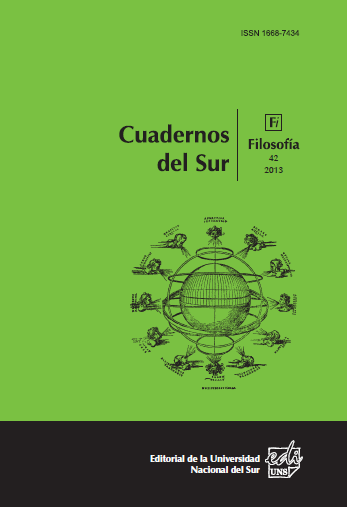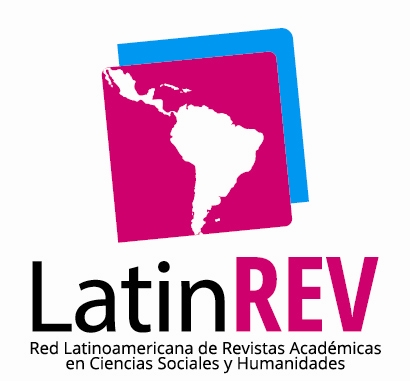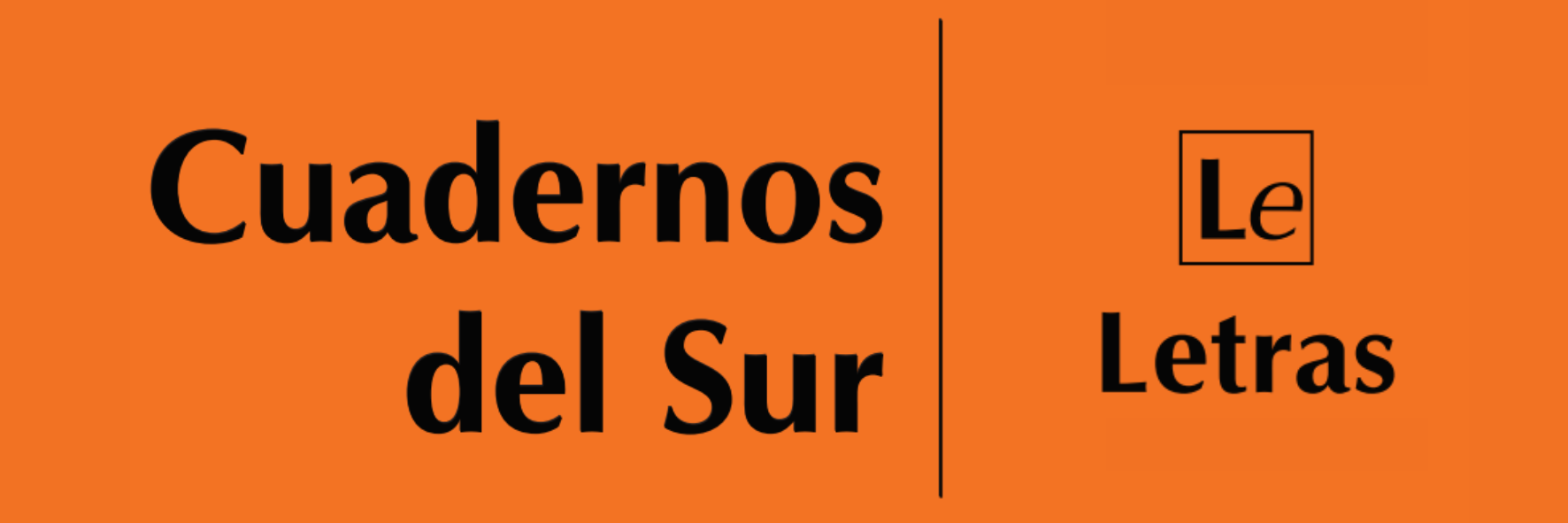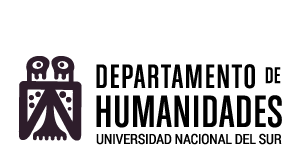De la verdad como invención a la materialidad del poder. Desplazamientos del pensar de Nietzsche a Foucault
Keywords:
Invention, Power, Policy of TruthAbstract
From the Genealogy of Morals and other aspects of Western culture, Nietzsche shows the link between his diagnosis of nihilism and his critique of the traditional notion of truth. I define Nietzsche’s conception of truth as perspectivistic, because there are no absolute but situated and contingent truths, constructed and emerging from the eventful struggle between wills to power that create and recreate the world. In Nietzsche’s legacy, Foucault is concerned with the question the truth that has operated as a desire for truth in Western history. In this sense, it goes beyond the “application” of a genealogy of the truths held in the West, to remove the various mechanisms operative in shaping social practices, knowledge and modes of subjectivity. In this paper, I try to show a shift in the thinking of Nietzsche to Foucault: the one that starts with a Nietzschean’s understanding of the world as fi ction and truth as invention and which leads Foucault to the study of concrete materiality of power devices and arrays of truth in history, from which certain modes of subjectivity emerge.
Downloads
References
Foucault, Michel (1989), Vigilar y castigar, Buenos Aires, Siglo XXI.
----- (1990), La vida de los hombres infames, Madrid, Las Ediciones de La Piqueta.
----- (1991a), Microfísica del poder, Madrid, Las Ediciones de La Piqueta.
----- (1991b), Saber y verdad, Madrid, Las Ediciones de La Piqueta.
----- (1991c), Tecnologías del yo y otros textos afines, Barcelona, Paidós.
----- (1992), El orden del discurso, Buenos Aires, Tusquets.
----- (1996), El yo minimalista y otras conversaciones, Buenos Aires, La Marca.
----- (1999), “Verdad y poder”, en Estrategias de poder. Obras esenciales, volumen II, Barcelona, Paidós, pp. 41-55.
----- (2003), La verdad y las formas jurídicas, Barcelona, Gedisa.
----- (2006a), Historia de la sexualidad. Vol. 1: La voluntad de saber, Buenos Aires, Siglo XXI.
----- (2006b), Historia de la sexualidad. Vol. 2: El uso de los placeres, Buenos Aires, Siglo XXI.
----- (2011), Leçons sur la volonté du savoir. Cours au Collège de France (1970-1971) suivi de Le savoir d’Œdipe, Paris, Gallimard/Du Seuil.
Laiseca, Laura (2001), El nihilismo europeo. El nihilismo de la moral y la tragedia anticristiana en Nietzsche, Buenos Aires, Biblos.
Nietzsche, Friedrich (1988a), La gaya ciencia, Madrid, Akal.
----- (1988b), La Genealogía de la moral, Madrid, Alianza.
----- (1995), Así habló Zaratustra, Buenos Aires, Alianza.
----- (1996a), Aurora, Madrid, Edaf.
----- (1996b), Ecce homo, Madrid, Alianza.
----- (1997), Más allá del bien y del mal, Madrid, Alianza.
----- (1998), Sobre verdad y mentira en sentido extramoral, Madrid, Tecnos.
----- (2006), Fragmentos póstumos (1885-1889). Volumen IV, Madrid, Tecnos.
Paponi, María Susana (2006), Pensar el presente. Travesía y ensayo sobre filosofía y cultura, Buenos Aires, Biblos.
Sánchez, Sergio (1996), “Verdad pragmática y creencia nietzscheana”, en Cragnolini, Mónica, Kaminsky, Gregorio (comps.), Nietzsche actual e inactual, vol. 2, Buenos Aires, UBA, pp. 125-134.
Zerpa, Marcela (2003), “Nietzsche: creencia, verdad, perspectiva”, en Cuadernos del Sur/Filosofía, n° 31-32, pp. 123-135.
Downloads
How to Cite
Issue
Section
License
Copyright (c) 2013 Sandra Marcela Uicich

This work is licensed under a Creative Commons Attribution-NonCommercial 4.0 International License.
Aquellos autores/as que tengan publicaciones con esta revista, aceptan los términos siguientes:- Los autores/as conservarán sus derechos de autor y garantizarán a la revista el derecho de primera publicación de su obra, el cuál estará simultáneamente sujeto a la licencia Atribución-No Comercial 4.0 Internacional CC BY-NC 4.0.
- Los autores/as podrán adoptar otros acuerdos de licencia no exclusiva de distribución de la versión de la obra publicada (p. ej.: depositarla en un archivo telemático institucional o publicarla en un volumen monográfico) siempre que se indique la publicación inicial en esta revista.
- Se permite y recomienda a los autores/as difundir su obra a través de Internet (p. ej.: en archivos telemáticos institucionales o en su página web) una vez publicado su trabajo, lo cual puede producir intercambios interesantes y aumentar las citas de la obra publicada. (Véase El efecto del acceso abierto).










